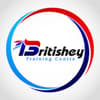Podcast
Questions and Answers
According to the lecture, what is one of the key challenges in defining effective language teaching?
According to the lecture, what is one of the key challenges in defining effective language teaching?
- Lack of understanding of language acquisition theories among teachers
- The diverse range of teaching styles that exist in a globalized world
- Subjectivity in defining what constitutes 'effective' teaching across cultures (correct)
- Lack of standardized tests for evaluating teaching effectiveness
The lecture suggests that years of experience in teaching are a guarantee of teaching expertise.
The lecture suggests that years of experience in teaching are a guarantee of teaching expertise.
False (B)
What are two examples of indicators used to identify expert teachers, as mentioned in the lecture?
What are two examples of indicators used to identify expert teachers, as mentioned in the lecture?
Recommendations from colleagues and students, teaching awards
The lecture highlights that effective teaching involves adapting to different ______ and understanding the specific opportunities and constraints of each setting.
The lecture highlights that effective teaching involves adapting to different ______ and understanding the specific opportunities and constraints of each setting.
Which of these is NOT mentioned in the lecture as a factor that influences the definition of effective language teaching?
Which of these is NOT mentioned in the lecture as a factor that influences the definition of effective language teaching?
The lecture suggests that the goal of teacher training programs should be to equip future teachers with the skills to survive in the classroom.
The lecture suggests that the goal of teacher training programs should be to equip future teachers with the skills to survive in the classroom.
According to the lecture, what is the significance of understanding the opportunities and constraints in different teaching contexts?
According to the lecture, what is the significance of understanding the opportunities and constraints in different teaching contexts?
What is a key difference between novice and expert teachers BEFORE lessons?
What is a key difference between novice and expert teachers BEFORE lessons?
Expert teachers can effectively improvise and prioritize student learning during lessons.
Expert teachers can effectively improvise and prioritize student learning during lessons.
What distinguishes adaptive experts from routine experts in teaching?
What distinguishes adaptive experts from routine experts in teaching?
Which of these strategies can help teachers become adaptive experts?
Which of these strategies can help teachers become adaptive experts?
The author suggests that the best teachers are ______ learners.
The author suggests that the best teachers are ______ learners.
Novice teachers tend to focus more on student outcomes than their own performance.
Novice teachers tend to focus more on student outcomes than their own performance.
Match the characteristics to the appropriate group of teachers:
Match the characteristics to the appropriate group of teachers:
How does the analogy of a seasoned race car driver and a commuter relate to expert teaching?
How does the analogy of a seasoned race car driver and a commuter relate to expert teaching?
The article suggests that effective teaching is a static profession, where knowledge is fixed.
The article suggests that effective teaching is a static profession, where knowledge is fixed.
What is the author's primary message about becoming an expert teacher?
What is the author's primary message about becoming an expert teacher?
Flashcards
Effective Teaching
Effective Teaching
Teaching practices that lead to successful learning outcomes.
Importance of Definition
Importance of Definition
Understanding effective teaching shapes training programs.
Expert Teachers
Expert Teachers
Teachers who excel due to skill refinement, not just experience.
Teaching Context
Teaching Context
Signup and view all the flashcards
Adaptability
Adaptability
Signup and view all the flashcards
Indicators of Expertise
Indicators of Expertise
Signup and view all the flashcards
Opportunities and Constraints
Opportunities and Constraints
Signup and view all the flashcards
Cultural Considerations
Cultural Considerations
Signup and view all the flashcards
Novice Teachers
Novice Teachers
Signup and view all the flashcards
Pre-Lesson Strategies
Pre-Lesson Strategies
Signup and view all the flashcards
Adaptive Experts
Adaptive Experts
Signup and view all the flashcards
Routine Experts
Routine Experts
Signup and view all the flashcards
Reflective Practitioners
Reflective Practitioners
Signup and view all the flashcards
Evaluative Practitioners
Evaluative Practitioners
Signup and view all the flashcards
Long-term Learning Goals
Long-term Learning Goals
Signup and view all the flashcards
Improvise Effectively
Improvise Effectively
Signup and view all the flashcards
Continuous Learning
Continuous Learning
Signup and view all the flashcards
Study Notes
Effective Teaching Practices
- Effective teaching is more than just lecturing; it involves actively adapting to diverse classroom dynamics and student needs.
- Defining effective teaching is challenging due to varying classroom environments and cultural perspectives on good teaching.
- Expert teachers are characterized by strategic lesson planning, anticipating potential problems, adapting to changing situations, and prioritizing long-term learning.
- Novice teachers often follow rigid lesson plans, struggle to predict student difficulties, and focus on individual lessons rather than broader learning goals.
- Expert teachers are adept at analyzing classroom interactions and adjusting their methods during lessons, effectively managing unforeseen situations and prioritizing student learning.
- Novice teachers might struggle with interpreting classroom dynamics and are susceptible to overlooking or abandoning lesson plans under pressure.
- Effective teachers actively reflect on how they've performed and consider subsequent improvements in teaching methods.
- Novice teachers tend to focus on themselves rather than student outcomes.
- Expertise comes from how one utilizes experience rather than solely relying on years of experience; constant refinement and adaptation are essential.
- Expert teachers are 'adaptive experts' who continuously improve, challenge their assumptions, and embrace new challenges; conversely, 'routine experts' stagnate through relying on established habits.
Examining Expert Teachers
- Expert teachers' abilities are determined by a combination of peer recommendations, awards, and student achievements.
- Expert teachers exhibit adaptability, adjusting teaching methods to different classroom contexts (e.g., resource-rich vs. resource-poor classrooms).
- Expert teachers proactively consider ways to enhance learning and identify areas for improvement.
Developing Reflective Practitioners
- Effective teachers are continuous learners, refining their methods, and actively challenging their assumptions.
- The goal is to cultivate in trainees an evaluative, growth-oriented mindset that promotes critical assessments of teaching methods and adaptations based on student needs.
- Reflective practitioners are able to assess their effectiveness and seek ways to improve.
Studying That Suits You
Use AI to generate personalized quizzes and flashcards to suit your learning preferences.





